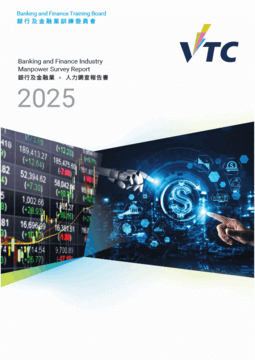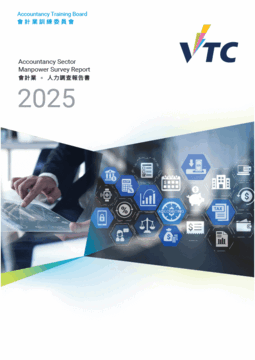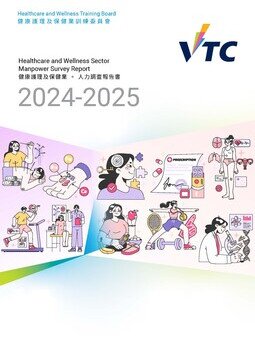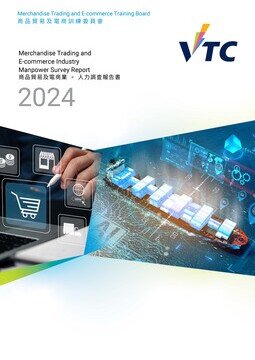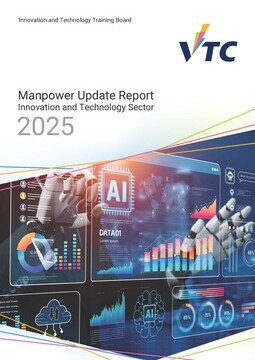Recommendation
Training Needs
- Banking -
1st
Anti-Money Laundering Compliance
2nd
Anti-Corruption Regulations
3rd
Business Ethics
- Securities and Asset Management -
1st
Problem Solving & Decision Making
2nd
Risk Management
3rd
Enhancing Quality Customer Services
- Other Financial Sectors -
1st
Enhancing Quality Customer Services
2nd
Financial Risk Management
3rd
Customer Relationship Management
Note(s):
Other financial sectors referred to Investment & holding companies, Finance leasing, personal loan, mortgage, instalment credit and other credit granting, Commodity futures & precious metals brokers / dealers, Stock, bullion & commodity exchange and Public administration, Money changers & foreign exchange brokers/dealers, Financial institutions & financial services, n.e.c.
To proactively address the evolving talent landscape, the Government is recommended to establish a collaborative industry-academic platform for forecasting future skill needs, ensuring training remains market-aligned. It should enhance talent attraction with a focused strategy for high-demand fields like fintech and sustainable finance, promoting these at global forums and streamlining relocation support. To manage structural shifts in the workforce, accessible upskilling support in strategic areas such as AI, sustainability, RegTech, and digital assets should be expanded and aligned with existing subsidy schemes, empowering professionals to transition into high-demand roles. Furthermore, the Government should facilitate structured cross-border professional exchanges within the Greater Bay Area to deepen practical experience and regulatory understanding, while also exploring measures to ease licensing constraints that currently hinder smoother talent mobility between Hong Kong and the Mainland.
Employers are recommended to establish proactive reskilling programmes to transition employees in high-automation-risk roles into adjacent high-demand fields through accredited training, ensuring sustainable career paths. To cultivate cross-border expertise, structured rotation programmes within the Greater Bay Area and Chinese Mainland should be implemented to develop first-hand experience and cultural fluency. Furthermore, formal and promoted career pathways for hybrid ‘tech-finance’ roles, with clearly defined competencies and remuneration, should be established to attract talent. Fostering a workplace culture that champions continuous learning and innovation by dedicating resources for external training and internal projects is also advised. Finally, strengthening compliance and risk management capabilities through continuous, role-specific training that addresses emerging technological, regulatory, and political risks is essential for maintaining robust operational resilience.
Employees are encouraged to cultivate “T-shaped” skills by developing deep expertise in a core area alongside a broad understanding of adjacent fields like data literacy and fintech to enhance versatility. Proactively pursuing accredited qualifications in high-growth areas such as sustainable finance or cybersecurity is recommended to strengthen expertise and marketability. Seeking hands-on experience, including involvement in Greater Bay Area projects and familiarity with new digital tools, is vital for building practical, future-ready capabilities. Furthermore, actively networking with peers in emerging sectors and placing greater emphasis on broader competencies like resilience, agility, and a strategic mindset will strengthen professional judgement and open collaborative opportunities.
Education institutes are recommended to develop and accredit future-focused programmes, including interdisciplinary “Finance-Plus” degrees and specialist credentials in Artificial Intelligence (AI), Financial Technology (FinTech), Environmental, Social and Governance (ESG), cross-border business, and virtual assets, to address persistent skill gaps. They should expand accessible upskilling pathways through flexible, stackable micro-credentials in high-demand areas like AI in finance and sustainability, aligned with government subsidy schemes. Proactively building capability in strategic areas such as virtual asset management and integrating content on geopolitical and regulatory risks into curricula is advised to equip practitioners for new markets. Strengthening continuous education on compliance and risk management to address evolving technological and political risks is also encouraged. Finally, institutes should enhance strategic planning through targeted manpower studies and audits of existing training to coordinate stakeholder efforts, address specific gaps, and place greater emphasis on cultivating broader competencies like resilience and strategic mindset.



